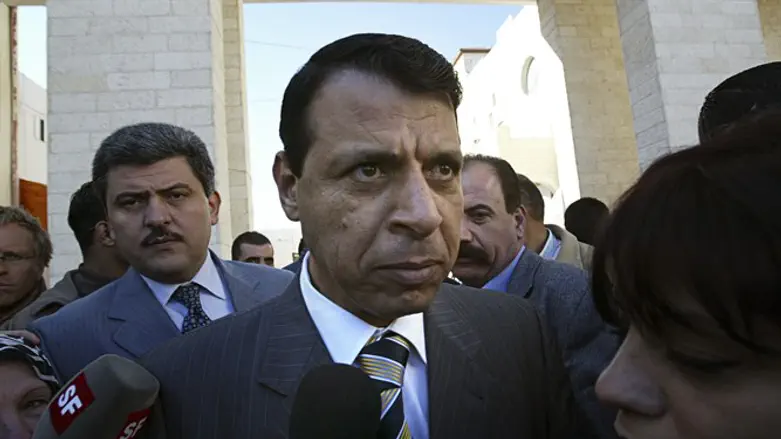
While most people don’t know it, the wars in Afghanistan and Iraq were not the first time the US was involved in fighting terror in the Middle East. In 1801, the United States launched its first war in the Middle East. Known today as the First Barbary War, it shares many things in common with Israel’s current conundrum concerning the Gaza Strip, and may offer some interesting insights into a possible strategy for dealing with the Palestinian Arabs.
In 1801, the North African Coast or the Barbary Coast, as it was known, was a hub of piracy. Nominally part of the Ottoman Empire, the coast which today covered the modern countries of Tunisia, Libya, Morocco, and Algeria was controlled by de facto independent governors known as Beys and Bashaws, whose economies were based on slave trade in non-Muslim men captured at sea.
Western Christan States continually fought unending wars with the Barbary States, never attaining a decisive victory. The Europeans despaired over what seemed to be an unending conflict and capitulated to the local rulers, agreeing to pay tribute to them to ward off the pirate attacks. This strategy only pushed the Barbary States to raise the price of “peace” almost yearly.
This shares much in common with the Gaza Strip, where every ceasefire after every war comes with a higher price than the previous one. In 2014 the ceasefire agreement called for extending Gaza’s fishing zone to six miles off the coast, today it will cost a seaport and airport, and tomorrow you can bet it will cost even more.
Under Thomas Jefferson, the Americans finally had enough. Believing in the concept of free trade on the high seas and no longer interested in paying ever growing tribute payments to the Barbary rulers, The United States sent a naval taskforce to blockade the city of Tripoli.
Sound familiar? Just like in Gaza, The Americans regularly bombarded the city and prevented the entrance of goods and people, and yet this only seemed to increase the local inhabitants' resolve to fight.
What did the Americans do to force the Tripoltians to surrender? They threatened to switch the leadership.
In 1804, an American army officer and diplomat to the Barbary States named William Eaton led the United States’ first foreign land invasion in its history. Landing in Egypt, Eaton, with a handful of US marines, built a mercenary army to support the claim of one Hamet Karamanli, the brother of Tripoli’s ruler Yusef Karamanli to the throne of Tripoli. The Americans led the force in a 500-mile march to Libya and captured the city of Derna from Yusef’s forces. Facing a legitimate challenge to his rule, suddenly Yusef was a lot more open to a possible peace treaty. Within a couple of weeks, the Tripoltain ruler agreed to a revolutionary new treaty, in which the United States became the first Christian nation to not have to pay yearly tribute to a Barbary State for peace.
What can we learn from this? How we can replicate this in Gaza? The answer may be a man named Mohamad Dahlan, or as he is popularly known, Abu Fadi.
Abu Fadi is the former head of the Palestinian Preventive Security Force in Gaza. During the mini-Palestinian civil war between the PA and Hamas in 2007, it was he who led the PA’s ultimately failed effort to control the strip. Abu Fadi is no friend of Hamas. He has a very good relationship with the US, Egypt, the UAE, and other supposedly moderate Sunni Arab states. The US and indeed much of the world would much prefer to see him in charge of the strip. He also reportedly has a good working (with an emphasis on working as he is an implacable foe of the Jewish State) relationship with Israel and it was he who The US under Bush and the Israeli government supported in the 2007 civil war. Another bonus, he is a sworn enemy of Mahmoud Abbas and could possibly be used to “kill two birds with one stone,” presenting a serious rival to succeed the PA chairman, something which might force Abbas to re-evaluate his continued rejection of peace with Israel.
Abu Fadi is no friend of Israel, having been arrested more than 11 times by security forces in his younger years. However, he is defiantly not the proverbial “devil we don’t know” and during his time in Gaza, he actively cooperated with the Israeli government and proved to be a more moderate leader between the choices of Hamas or himself. His close relationships with the US and moderate Sunni states create an interest for him to work with Israel.
Now more than ever is an opportune time to do this: we have possibly the most supportive US administration in history, Hamas is completely isolated and under siege not just from Israel but from the PA and Egypt as well; On top of all this, Hamas is still struggling to recover from the war in 2014 and has never been more vulnerable..
I propose that Israel stop the trend towards tribute with this new temporary ceasefire deal and invade Gaza with the goal to re-instate Mohamad Dahlan as leader in Gaza. Preferably this would happen through a “treaty” in which Egypt re-occupies the strip and places Dahlan in charge. Even if Egypt refuses to take part, and even without an IDF operation, putting Dahlan in power should be Israel’s goal.
In the best-case scenario, this would force both Hamas and Abbas to surrender and accept peace with Israel and at worst we would have a second PA in Gaza which is still immensely better for everyone Israel, Gaza, and Egypt.
Joshua Pacht is a student studying International Relations and Middle Eastern & Islamic Studies at The Hebrew University of Jerusalem.
